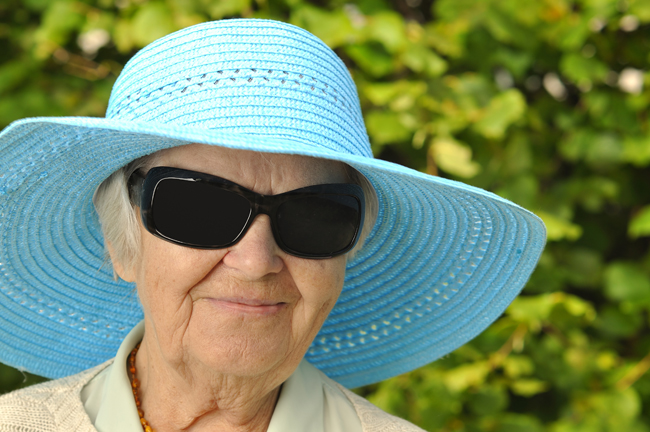
During the hot months of summer, it is often advisable, for seniors especially, to stay indoors and keep cool. Seniors are more prone to heat-related illnesses (see our previous post on Senior Care Tips and Summer Precautions for Elders).
How can you stay active while keeping cool? What can caregivers do to keep elderly loved ones engaged and active? Here are some tips for indoor activities and summertime fun for seniors and caregivers:
- Take this time to organize pictures, scrapbooks and share family memories. Plan ahead for the holidays and organize family gifts of photos or a memory book.
- Plan ahead for the holidays by putting together gift lists and organizing address books and cards.
- Consider audio books if reading is difficult. Check with your local library about Books on Tape/Talking Books programs. Large print books or an eReader may help someone with visual challenges.
- If your loved one enjoys music, consider putting together a special music collection on an ipod or burning a CD and buying a portable CD player that can be easily within reach (it may be a good time to consider burning those old albums to CDs for better portability/ease).
- Plan outings to local museums and indoor cultural events.
- Take in a movie, especially on a hot afternoon when the prices are lower and the air conditioning feels great!
- Do a little shopping at the mall or spend some time at a local bookstore and get an iced coffee or treat while you linger over a book or magazine.
- It is a good time to get organized! Slowly go through closets or files, work together on shredding items and cleaning out/organizing.
- Set a goal to learn something new together…it is great for the brain! Practice a new language (or pick up an old one that you haven’t used in a while, or teach each other if one generation has a jump start); learn a new craft such as crocheting; take an art class (or practice along with one of the art lesson TV shows); learn and practice a new game-chess, cards, the latest board game; read a different genre book than you would usually or join in with an online book club or review Oprah’s old picks.
- Take a course at the local recreation center or senior center. Courses range from art classes to language lessons to computer classes and much more, usually for very reasonable prices.
- Check with local recreation centers and senior centers about other activities. They range from dances to trivia contests and movies to outings and various clubs. If you are a caregiver, go to the local centers and do some research for your loved one to explore what might be interesting.
- Ask your elderly loved one to share a skill/teach you. Perhaps he/she can give you pointers on a craft, show you how to make old family recipes, or tell you about the history of your hometown.
- Connect with technology! If your loved one is not very tech-savvy and you are (or know someone who is), consider setting up a computer and internet connection and giving some basic lessons. Social networking, online support groups, and informational resources can all be useful. A lot of people enjoy playing games online, such as chess and scrabble. Set up Skype or a similar service for video chatting with family members and friends at a distance. These are just a few ways to get started…
- Consider no-cook meals or making items that just require a quick simmer. Stay cool and hydrated with a good mix of fruits and vegetables, in addition to plenty of fluids. Flavor water with oranges, lemon, lime and/or mint for a treat to encourage water intake.
Exercise/keeping active:
- Consider swimming and water aerobics as an option. Check with your local recreation center about classes and options.
- Join a gym or walk on a treadmill if you usually do outdoor activities. Some Medicare Advantage plans provide gym memberships as part of your enrollment. Senior centers often have senior-specific classes and can have the added benefit of socialization.
- Go “mall walking”. Many malls offer early hours when the mall is open specifically for walkers, but you can also go stroll around any time if you don’t mind the shoppers.
- Meet with a personal trainer who has experience with seniors to design an in-home exercise program. They may recommend some low-cost equipment such as weights, but many exercises can be done without buying anything special.


